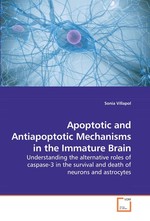The classically defined main executioner protein of programmed cell death is caspase-3. It is implicated in the death of neurons, however we mainly observed it in the nucleus of activated astrocytes in the damaged cerebral hemisphere where it was marginally associated to the DNA fragmentation marker. The majority of these glial cells have an intense caspase-3 expression and they survive at longer periods after damage. The inhibitor of apoptosis and heat shock proteins, both responsible to protection against to death, are poorly correlated with caspase-3 in neurons, but strongly correlated in astrocytes, pointing to these proteins as relevant candidates for its blockade, which could account for the absence of astroglial cell death. Also, caspase-3 was found with the presence of caspase-cleaved fragments of glial fibrillary acidic protein, suggesting could be an important for astroglial cytoskeleton remodeling following injury. This suggests new non-apoptotic roles of caspase-3 in astroglial cells and mechanisms for caspase-3 blockade, improving our understanding of the mechanisms employed by astrocytes to cope with excitotoxic damage in the immature brain.
Данное издание не является оригинальным. Книга печатается по технологии принт-он-деманд после получения заказа.


